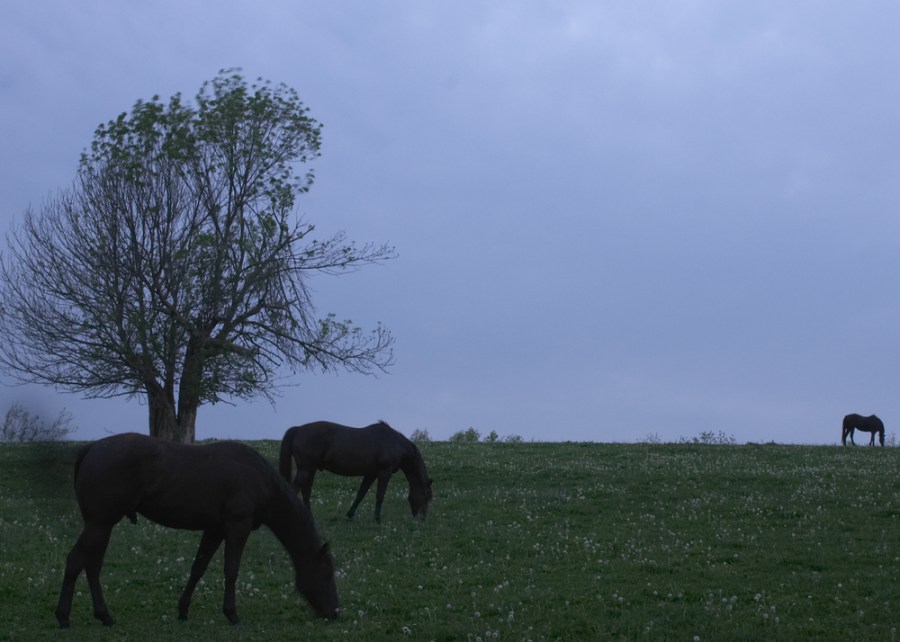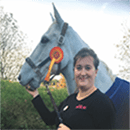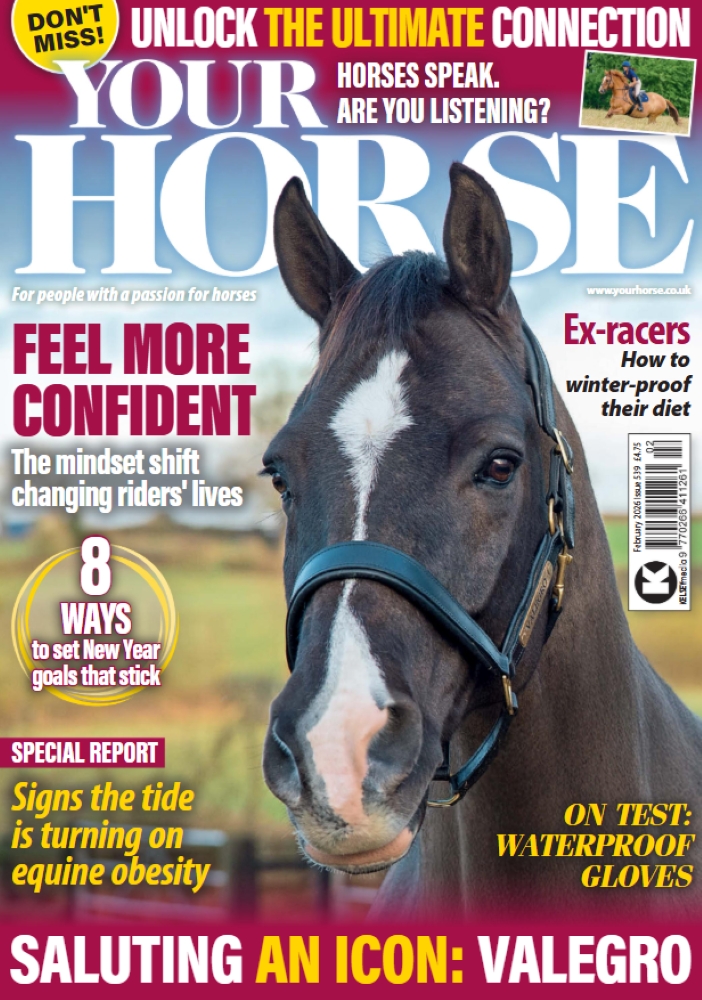While you’re tucked up in bed at night getting some much-needed ZZZs, your horse is probably wide awake.
Horses don’t need as much sleep as people do and are actually very active through the hours of darkness. They will graze, move around, and socially interact all night long.
Having said this, the quality and quantity of a horse’s sleep directly affects their health and wellbeing (and yet sleep is rarely considered as part of a horse’s care plan).
So they will fit sleeping into their night schedule too — just not the full eight or nine hours that you and I like to get.
How horses see in the dark
Most horses enjoy snacking on the odd carrot, but it’s not because of these orange vegetables that they can see so well in the dark.
“They have more rods than cones in their retina, and also a tapetum lucidum, meaning that they can see better at night or in dim light than humans,” says equine behaviourist Rosa Verwijs.
“They may not be able to see fine detail in such dark conditions, but are unlikely to trip or walk into inanimate objects as they can see these well enough.”
Research has demonstrated that horses are able to discriminate between objects in nearly complete darkness, and certainly in much darker conditions than humans can, meaning that they can also negotiate uneven terrain at night.
They are highly vigilant prey animals and they have good enough eyesight to continue normal activities, such as eating in dark stables and foraging in fields on moonless nights.
Light/dark cycle effects
The light/dark cycle affects many physiological functions in horses mainly through hormonal mechanisms, and this will have an impact on feeding, exercise and sleep activity.
“Mares are more likely to ovulate at night, for example, and are also more likely to foal at night when oxytocin, which stimulates contractions, peaks,” explains Rosa.
Increased eating
Some research suggests that horses graze more at night than during the day.
They also love to pick at the new shoots of grass that come through early in the morning too, which means it’s gone by the time you arrive on the yard — and may be fooled into thinking there is less grass out there than there really is.
Remember that as grazing animals, horses have evolved over millions of years to eat low-value, high-fibre food for up to 18 hours a day. They will browse on bushes, trees and shrubs.
This is way it is critical for both their physical and mental health that horses have enough low-calorie food to sustain them around the clock, including at night.
Lying down
According to Rosa, adult horses are more likely to lie down at night.
Chances are that young horses will be seen lying down during the day as well as at night.
“Adult equines may spend more time resting and sleeping while standing during the day in various stages of drowsiness, engaging their stay apparatus to avoid falling over, and meaning that they are able to run away more easily,” she says.
“Under natural conditions, horses will rest more in the summer when food is more abundant, and to avoid the heat and the flies.”
Sleep deprivation
Poor management or physical problems can lead to horses becoming sleep deprived and at risk of serious injury. It can also affect their behaviour and mood — much like not sleeping well can affect a person, too.
Horses, like humans, have several stages of sleep, but in sharp contrast to us they sleep for only around 4-5 hrs in a 24hr period.
There are three stages of physiological sleep and horses can achieve stages one (light sleep) and two (slow wave or deep sleep) while standing up.
However, the third stage — rapid eye movement (REM) sleep — occurs only while the horse is lying down due to the complete muscle relaxation required.
Find out more about how horses sleep here.
Final thoughts
So when you wake up in the morning all bright-eyed and ready to face the day, you can be happy in the knowledge that your visit to the Land of Nod coincided with a busy and productive night for your horse.
No doubt they’ll be very happy to see you when you arrive on the yard — and ask you to top up their food supply sharpish!
Main image © Shutterstock. Additional reporting by Stephanie Bateman.








